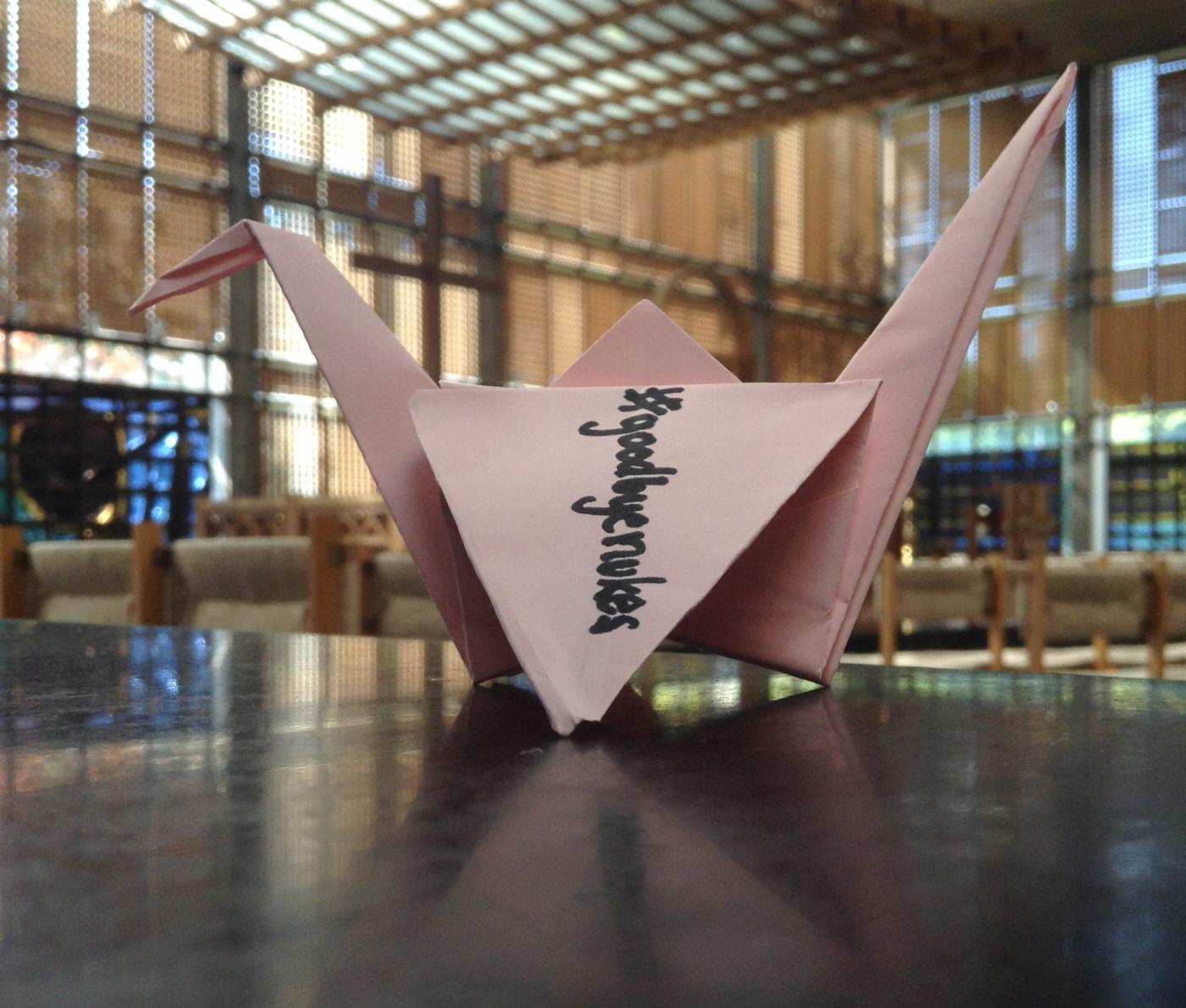I don’t think that the news that the International Campaign to Abolish Nuclear Weapons (ICAN) won the Nobel Peace Prize has fully felt like a reality for any of us who have been involved with this work over the years. Since the prize announcement on Friday, we have had the opportunity to raise our message in an unprecedented way but it is still that message at the heart of what we are doing – that nuclear weapons are immoral, unethical, dangerous and now, illegal.
My work with ICAN has taken place in the context of WCC’s longstanding commitment to nuclear disarmament. As an ICAN member, WCC has worked to raise the voices of faith communities to advocate for the complete elimination of nuclear weapons and to highlight the ongoing need to support survivors. We have collaborated in both an interfaith and ecumenical way with organizations and individuals who work for nuclear disarmament in the name of peace and justice.
This builds on a long history of advocacy by so many in the ecumenical movement such as our sisters and brothers in the Pacific Islands who for decades have highlighted the devastating impacts of nuclear weapon testing in the region.
For people of faith, nuclear weapons violate core tenets of our deepest held beliefs and our outrage at the continued support for such weapons has guided our advocacy. Suggesting that the appropriate response to peoples or ideologies that we find threatening is to arm ourselves with ever more deadly weapons should represent a violation of our faith.
As Christians, we are called to love our neighbors – and not just our neighbors who share our street, our neighborhood, our nationality or our ideology. We are called to love the stranger, the Other, the person or group that we find difficult, dangerous or scary. For me, working to ban nuclear weapons is rooted in this clear commandment – to work to engage in the world in a way that demonstrates radical love for the stranger.
Radical love means engaging in dialogue, building trust through citizen-based diplomacy and taking a reflexive approach to our own politics, not engaging in bellicose rhetoric, threatening to complete destroy our enemy or investing our material resources in weapons systems designed to annihilate life.
Those who would defend nuclear deterrence as an ideology have often done so on the basis of nuclear weapons not as a weapon but as an idea. I was once condescendingly told by one such person “everyone knows that nuclear weapons aren’t meant to be used” as a way of dismissing my insistence that there is no country, no person who can be trusted with a weapon that is powerful enough to destroy the world. For people of faith, the idea that some countries or leaders should be entrusted with such an ability should register as a kind of heresy, a violation of the very foundation of our religious commitments.
There is a strange cognitive dissonance that comes with the Nobel Peace Prize that I hadn’t ever considered until I found myself closer to the heart of it. The work of peacebuilding is fraught and most of it is born out of the necessity to address horrific human suffering and violence. Of course, it is extraordinary to be recognized in this way but this work would have never been necessary without the context of the terrible suffering of so many victims and survivors of Hiroshima, Nagasaki and nuclear testing around the world. It is those voices and experiences that have to be at the center of this work and no matter how incredible this award is, it will never begin to compensate for what was lost. Only the complete elimination of all nuclear weapons will provide the assurance that this suffering will never reoccur.
The prize recognizes some of the most urgent peace work that is happening in the zeitgeist which means that the work does not pause or settle even in the midst of the award. Indeed, ICAN finds itself in the midst of First Committee at the United Nations General Assembly this week, continuing to urge diplomats to sign and ratify the new Treaty for the Prohibition of Nuclear Weapons. It is the treaty itself that is the accomplishment but the work is far from over.
In a world that sometimes seems divided in powerful, hierarchical ways that marginalize the voices of indigenous people, colonized communities, women, people of color and poor people, this campaign has sought to put the experiences at the center of the work.
ICAN has refused the logic that says that only diplomats or world leaders have a voice in nuclear disarmament, that only states with nuclear weapons get to decide how and when to disarm. At every step, this campaign has insisted that the destruction of the world is too serious to be left to the elites that have imbued themselves with privilege.
My love and commitment to the World Council of Churches has been based in my admiration for WCC’s same devotion to working for the good of all people. As a Christian, my faith calls me to the work of justice, peace, humility and grace and to continue to believe that the world can be a safer place for all people.






